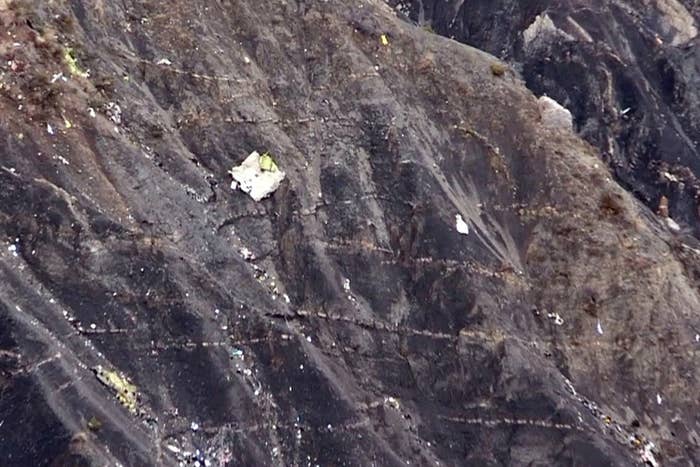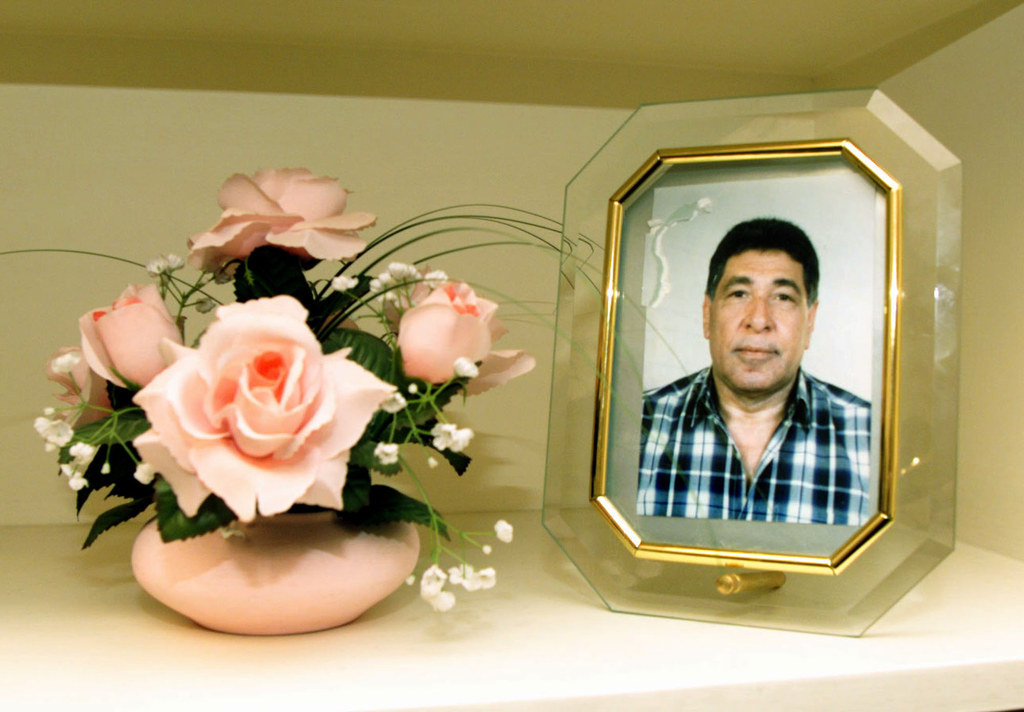On Thursday morning, Marseille prosecutor Brice Robin revealed that Germanwings co-pilot Andreas Lubitz deliberately locked his pilot out of the cockpit and descended into the French Alps, suggesting the cause of the crash may be murder-suicide.

The news caused shock throughout the aviation industry, and it means that doomed Flight 9525 appears to have become one of only a handful of aviation disasters to have been willfully caused by a pilot or co-pilot, and the second biggest in history.

One of the most notable previous incidents was when SilkAir Flight 185 — travelling from Jakarta to Singapore — crashed into the Musi River near Pelambang, Indonesia, in December 1997, killing all 107 people on board after descending from 30,000 feet.

In 2000, U.S. investigators concluded that SilkAir pilot Tsu Way Ming had deliberately disconnected the plane's cockpit voice recorder and did not attempt to revert the plane's nosedive, the BBC reported.
In a letter to its Indonesian counterpart, the U.S. National Transportation Safety Board (NTSB) said it failed to find anything wrong with the plane, adding that "the accident can be explained by intentional pilot action."
Indonesian investigators had launched their own parallel investigation, and did not accept the suicide explanation due to what was deemed insufficient evidence.
According to the cockpit voice recorder, Tsu left the flight deck after asking his co-pilot Darren Ward, a New Zealand national, if he wanted a glass of water.
Minutes later, both flight data recorders had stopped, and a short while after that, radar data showed that the aircraft began to make a swift descent, without issuing a distress call, before disappearing off the radar screen entirely, the New York Times reported.
The Indonesian report into the incident said Tsu had suffered heavy financial losses before the accident and had been reprimanded three times and demoted for breaches of discipline by SilkAir, the NYT said. Singaporean police confirmed that Tsu had been experiencing monetary problems.
However, a separate report by Singaporean police failed to find evidence that Tsu had any suicidal tendencies.
The biggest plane crash believed to have been pilot murder-suicide was that of Egypt Air Flight 990, which was traveling from L.A. to Cairo with a stop at New York's John F. Kennedy airport on Oct. 31, 1999.

The Boeing 767-300ER plummeted into the Atlantic 60 miles southeast of Nantucket (above), killing all 217 people on board, many of whom were Americans.
The flight crashed 33 minutes after taking off from JFK airport.
In 2002, a U.S. investigation concluded that the plane crashed through Egyptian co-pilot Gamil al-Batouti's ''manipulation of the airplane controls," the NYT said.

The NTSB based its conclusion on information gained from the plane's flight data recorder.

The data showed that the plane's autopilot had been deactivated, and that the aircraft had gone into a wings-level dive with both engines turned off, the NYT reported.
While the captain was in the toilet, Boutiti was heard repeating "I rely on God" several times in Arabic. When the captain returned, it was concluded, he was showing substantial signs of stress, saying "what's happening?" and, upon discovering the engines were down, "get away in the engines [sic]."
In its report, the NTSB did not discuss Boutiti's motive and avoided using the word suicide, the NYT said. Boutiti's family refuted the suicide suggestion, and had dismissed a previous draft report as "media propaganda," according to the BBC.
The U.S. account of the crash proved highly controversial in Egypt. Cairo consistently rejected anything resembling a suicide theory, and Egyptian officials and public opinion remained adament throughout that suicide was not to blame. On the report's release, Egyptian officials said that it had failed to consider evidence suggesting the aircraft's elevator control system had failed, the BBC reported.
A 2002 Los Angeles Times report suggested Boutiti may have had a different motive. A former captain at the airline, Hanofy Taha Mahmoud Hamdy, speculated that Boutiti may have been enacting revenge on an EgyptAir executive aboard the plane named Hatem Rushdy. According to Taha, Rushdy had reprimanded Boutiti for sexual misconduct hours before the flight.
